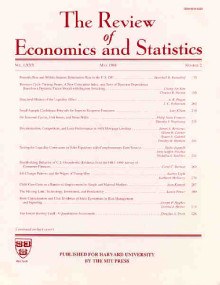
Leuven, E., Lindahl, M., Oosterbeek, H. and Webbink, D. (2007). The effect of extra funding for disadvantaged pupils on achievement Review of Economics and Statistics, 89(4):721--736.
-
Affiliated authors
-
Publication year2007
-
JournalReview of Economics and Statistics
This paper evaluates the effects of two subsidies targeted at schools with large proportions of disadvantaged pupils. The first scheme gives primary schools with at least 70% disadvantaged minority pupils extra funding for personnel. The second scheme gives primary schools with at least 70% pupils from any disadvantaged group extra funding for computers and software. The cutoffs provide a regression discontinuity design that we exploit in a local difference-in-differences framework. For both subsidies we find negative point estimates, which are for some outcomes significantly different from 0. Extra funding for computers and software seems especially detrimental for girls' achievement. The negative effects of extra funding for computers and software are consistent with results from other recent studies casting doubt on the efficacy of computers in schools.